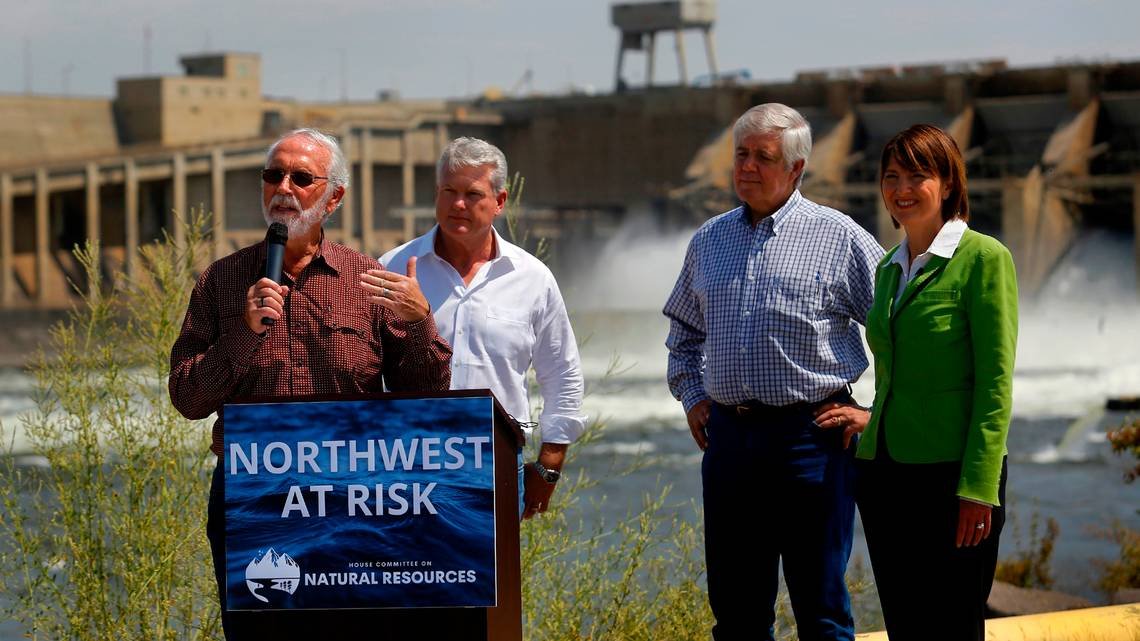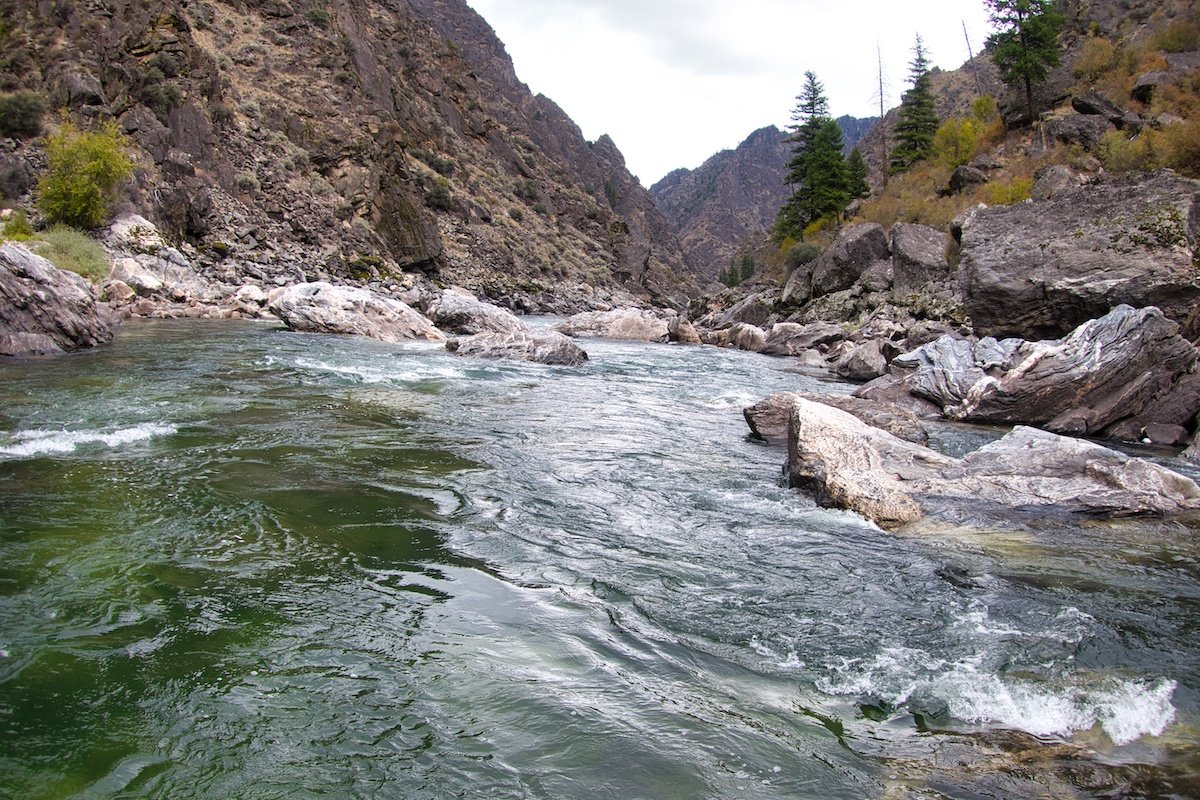A Look into the Struggle Against Snake River Dam Removal
The waning daylight hours of autumn can sometimes elicit a consideration of lost opportunities. Under the fog of an early October morning, I’m reckoning with the reality that the lower Snake River dams will remain standing through the end of the Biden Administration. The failure to open up the Snake River, the largest tributary of the Columbia, to unfettered salmon migration puts the future of Columbia Basin salmon runs at severe risk for extinction. And if the unthinkable comes to pass, the lost chance to save salmon in the Columbia will sting for an epoch that will look, in human time frames, a hell of a lot like eternity.
Hells Canyon, Snake River Idaho.
A quick rewind: since 2018, when Idaho Republican Congressman Mike Simpson became an outspoken advocate for returning salmon in significant numbers to his home state, tribes, the state of Oregon, and several conservation groups have been working to leverage Rep. Simpson’s support into a free-flowing Snake River. Alas, the effort thus far has come to naught. Barring some eleventh-hour miracle, the negotiations between the Biden Administration, the aforementioned pro-salmon coalition, and the federal agencies, led by the Bonneville Power Adminstration, that manage dams in the Columbia Basin, will fall well short of Snake River dam removal. The usual hodge-podge of band-aids–money for hatcheries, habitat restoration, studies, and a vague promise to do something more drastic if none of the time-worn gestures work out (and they won’t)--will be made. NGO’s will celebrate this latest instantiation of Groundhog’s Day as a win. Tribes will take the money as a consolation prize, and continue to play the long game, though time is running out. And the dams will continue to kill salmon, perhaps until they are no more.
Part of the blame for this failure lies in the overly optimistic approach the pro-salmon contingent has taken over the years. Advocates for Snake River dam removal have, for three decades now, naively trusted that the BPA and their sister federal agencies come to the negotiation table with the intent to bargain in good faith; to balance, as laws and treaties spell out, salmon restoration with hydropower production. But the past record shows Bonneville has no such intent. Current circumstances indicate they still don’t. And unless prodded by those with the power to do so, it’s a safe bet to say they never will.
To understand why this is so, you have to understand Bonneville–not so much by the bullshit they sling to politicians in their constant quasi-legal lobbying efforts, nor in carefully-worded statements to the press, nor strictly in the quack fisheries science data they’ve reliably produced for the courts as well as the public. As the Merchant Marines are wont to say, acta non verba. Actions, not words. And the actions of Bonneville paint an unpleasant picture of a federal agency has been bent so far over in the service of corporate interests, it finally has determined to become as much like a corporation itself as possible, even if that means shirking its duty to serve the public’s common interests, including salmon restoration.
I’ll be posting daily this week to round out this rather lengthy tail. In the meantime, no need to take my word on BPA’s intentions. This from their own strategic plan: “We will work collaboratively with the Northwest Power and Conservation Council, our customers and regional public interest organizations to ensure BPA meets its statutory obligations. However, our investments will be more closely guided by BPA’s power and transmission system needs and the imperatives of competitiveness and long-term commercial performance.”
In other words, we will obey the law when it suits our bottom line. And we won’t when it doesn’t. Tomorrow, I’ll take a deeper dive into how “competitiveness,” and the honing of a competitive edge that includes bending the law, became, strangely enough, the modus operandi of a federal agency invented less to compete than to serve the public.
If you enjoy what you’ve read, and you want to support my mission to remove dams throughout the US, please purchase my latest book, Cracked: The Future of Dams in a Hot Chaotic World.
Once a week I write about critical issues that affect salmon, steelhead, and free flowing rivers throughout the west. Subscribe to my newsletter below:

























